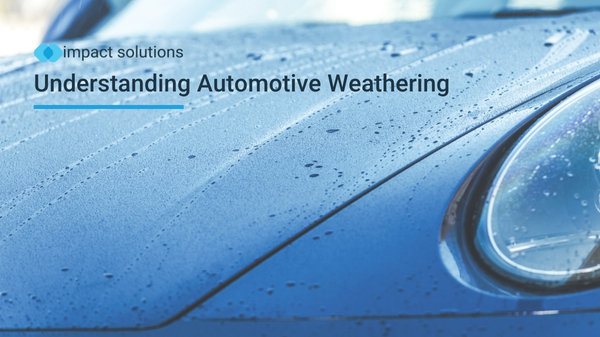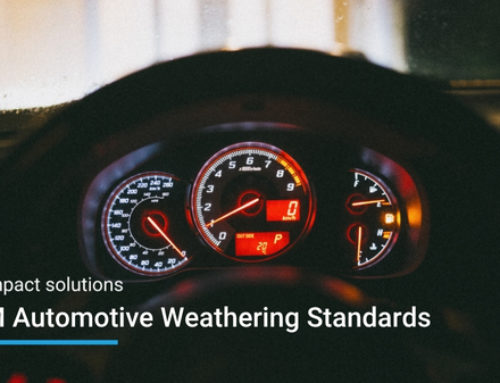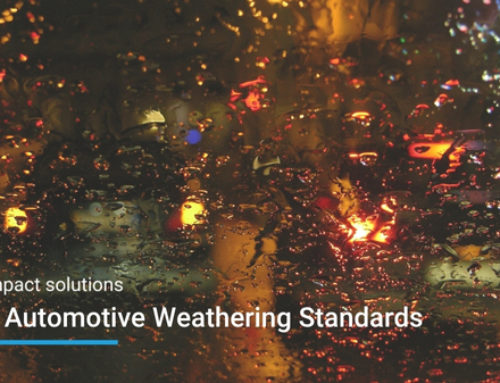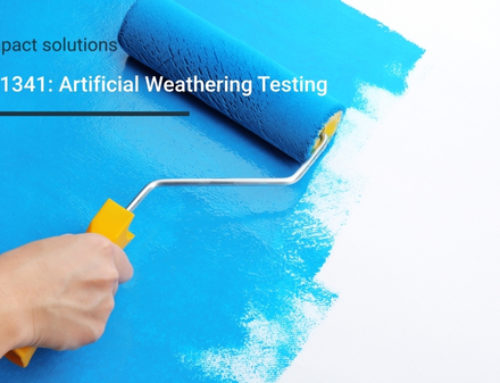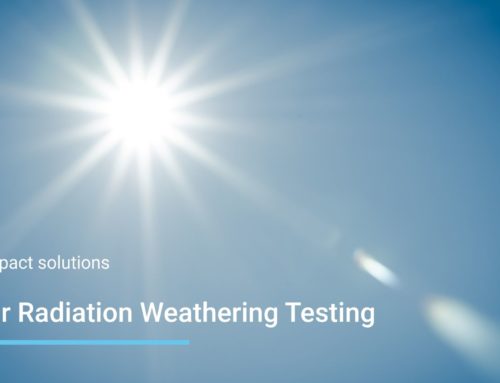In the automotive sector, materials face relentless environmental stress. From intense sunlight to freezing rain, UV exposure to humidity changes; every component must be able to endure. Automotive weathering testing is an essential tool for assessing how parts will age in real-world conditions and safeguard product integrity, safety, and brand reputation.
What Is Automotive Weathering Testing?
Automotive weathering (or accelerated weathering) refers to laboratory testing that simulates the long-term effects of weather (primarily light, UV, moisture, heat, and temperature cycling) on automotive materials, components, and coatings. Rather than waiting years to see how parts perform, engineers use controlled chambers (like xenon arc or QUV systems) to compress decades of exposure into weeks or months.
Impact Solutions offers these tests for plastics, fabrics, coatings, and composites used in both interior and exterior automotive applications, under UKAS-accredited standards.
The Hidden Risks of Weathering on Vehicles
Whether inside or out, automotive parts are vulnerable to:
- Colour change, fading, or chalking (dashboards, trims, fabrics)
- Cracking or embrittlement of polymers and coatings
- Delamination or adhesion loss between layers (paintwork, lamination in glazing)
- Hazing, yellowing, or loss of clarity in headlamps, display equipment or transparent parts
- Seal and gasket failures that lead to water ingress or air leaks
- Hardware fatigue or corrosion from thermal stress
Because even interior components may be exposed to sunlight filtered through windows, weathering impacts go beyond external parts. Standards like SAE J2412 simulate interior UV exposure using xenon chambers to evaluate fade and long-term stability.
Standards and Accreditation
One of the most powerful advantages of partnering with Impact Solutions is our ability to test to numerous OEM (Original Equipment Manufacturer) and international standards, thanks to our flexible UKAS accreditation.
Some common automotive weathering standards include:
- SAE J2412 / SAE J2527 (for interior & exterior components)
- ISO 11341 / ISO 4892-2 (international artificial weathering)
- OEM-specific protocols: PV 1306 / 3929 / 3930 (Volkswagen), GMW 14162 (GM), VDA 75202 (BMW), and more
Impact Solutions has built a robust capability, with multiple xenon arc and QUV chambers available for testing to your required standard.
How It Works (in Brief)
Sample preparation: Parts or material samples are prepared to defined dimensions and appearance.
Chamber exposure: Samples are exposed to cycles of light, dark, moisture (spray or condensation), and heat in chambers.
Duration settings: Depending on the standard, tests run for varying durations
Post-exposure evaluation: Assessed via visual inspection, mechanical tests, or microscopy.
Failure analysis: If damage or delamination occurs, further analysis may define root causes.
Why Choose Impact Solutions for Automotive Weathering?
- Flexible UKAS accreditation ensures your test results meet industry and regulatory standards.
- Broad standards coverage, with many OEM and international protocols supported.
- Advanced test equipment including xenon arc and QUV chambers
- Technical support, we guide clients through standard selection, test design, and result interpretation.
Want to discuss a test programme or find out which standards apply to a specific component? Contact Impact Solutions today to see how we can help future-proof parts for real-world automotive performance.
Don't forget to follow us on LinkedIn, Facebook and Instagram for more service updates and industry news.
FAQ
What is automotive weathering testing?
Automotive weathering testing is a laboratory process that simulates years of outdoor exposure (including sunlight, heat, humidity, and rain) in a controlled environment. It helps manufacturers predict how plastics, coatings, and other materials will perform and age over time, without waiting years for real-world results.
Why is weathering testing important for vehicles?
Vehicles face constant environmental stress. UV radiation can fade colours and accelerate perishing and cracking of rubber seals and hoses, moisture can cause delamination, and temperature cycles can weaken materials. Weathering tests identify these risks early, helping manufacturers choose durable materials and reduce warranty claims or premature failures.
What's the difference between real-time and accelerated weathering?
Real-time weathering means placing samples outdoors for years to observe natural ageing.
Accelerated weathering compresses that process into weeks or months using chambers that replicate UV light, heat, and moisture exposure; providing faster, consistent, and measurable results.
What standards apply to automotive weathering testing?
Common standards include SAE J2412, SAE J2527, and international protocols like ISO 4892-2 and ISO 11341. Many OEM's; such as Volkswagen (PV 3930), BMW (VDA 75202), and General Motors (GMW 14162) also have their own specific testing methods. Impact Solutions is UKAS-accredited to conduct a wide range of these tests.

